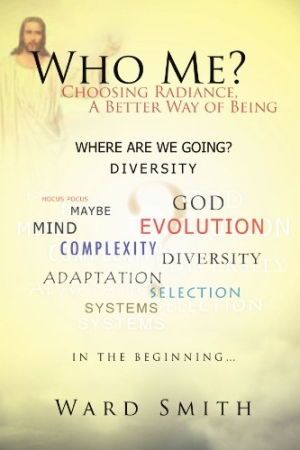Who Me?
Choosing Radiance, a Better Way of Thinking
Intended as an analysis of how scientific theories can enhance, rather than detract from, the lives of Christians, Who Me? Choosing Radiance, A Better Way of Being is instead a wildly confusing polemic that can only serve to bewilder unsuspecting readers.
With any book that proposes to delve into the contested area that often exists between science and religion, one hopes for clarity and an author with both the knowledge and the skills required to shed new light on old problems. In Smith’s case, one supposes from the introduction that he is going to reveal how an understanding of systems theory can be used to pave a path for the future of Christianity. Smith announces that we are approaching a time of chaos and that “systems theory suggests that it will be new churches (organizations and processes) that emerge from the chains of ritual and tradition” to show the way forward. As enticing as that prospect may sound, however, one soon discovers that Smith, unfortunately, is not up to the task of answering his own question: “Can we adapt?”
The best one can say about Smith’s writing is that, hidden among his many disjointed, unrelated thoughts, is the glimmer of a coherent argument suggesting that God has a plan for the world. Since Smith frequently inserts comments on natural diversity, evolution, and a Christianity built on a foundation of caring relationships, readers may eventually decide that Smith’s main focus is that God uses the diversity of evolution to achieve His purposes and that the highest purpose of all is for people of all religious persuasions to be engaged in loving relationships. But that can only be a guess, for as soon as one thinks Smith has finally settled on an idea that he’s going to logically develop in the following pages, Smith invariably veers off like a loose pinball bouncing around inside an arcade game.
One struggles to comprehend Smith’s meaning even at the level of a single sentence. “Our increased use of consequentialism as the dominant ethic that makes ‘some people worse off’ has become politically correct,” is one example. “Given the learning aspect of belief, many believe that belief is a process, an accumulation of knowledge, at the end of which is belief,” is another one.
There are, perhaps, moments in Smith’s book when the complexity of what he hopes to explain is itself so complicated that average readers, for lack of experience, will be unable to fully grasp his meaning. But readers cannot be blamed for not recognizing the word “consequentialism,” even if Smith alleges it is the dominate ethic of our time, or if they tire of stumbling around in circles on the subject of belief.
A book with myriad shortcomings, Who Me? should only be taken up by readers who enjoy combing through tangles of verbiage to find the occasional nugget of a tenable idea.
Reviewed by
Diane Taylor
Disclosure: This article is not an endorsement, but a review. The publisher of this book provided free copies of the book and paid a small fee to have their book reviewed by a professional reviewer. Foreword Reviews and Clarion Reviews make no guarantee that the publisher will receive a positive review. Foreword Magazine, Inc. is disclosing this in accordance with the Federal Trade Commission’s 16 CFR, Part 255.

